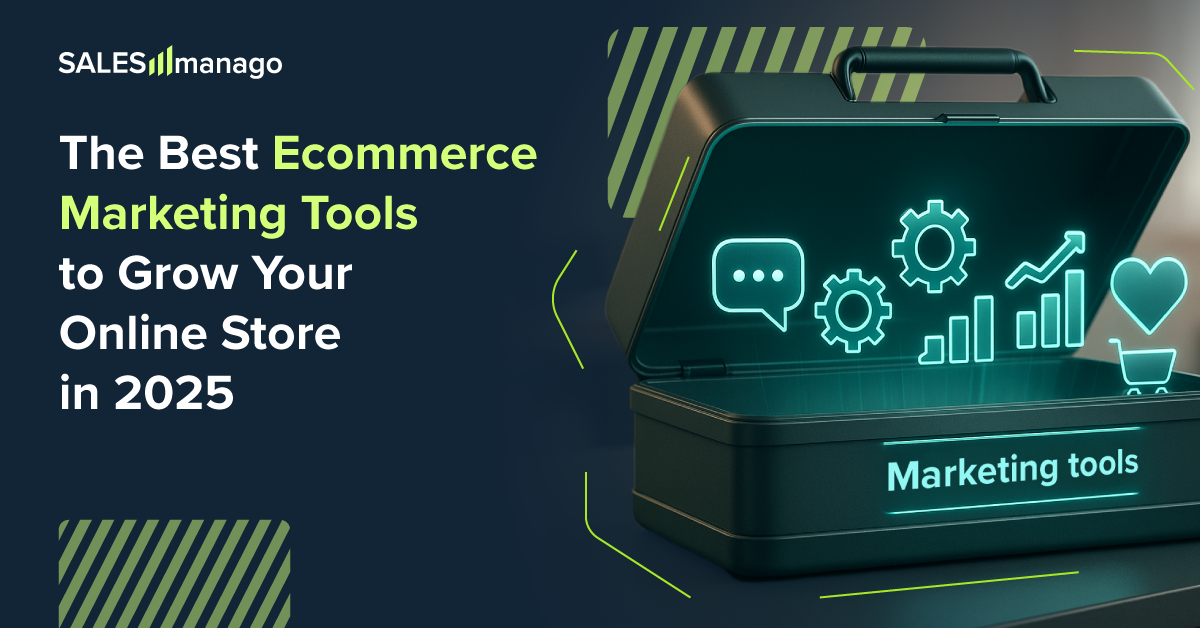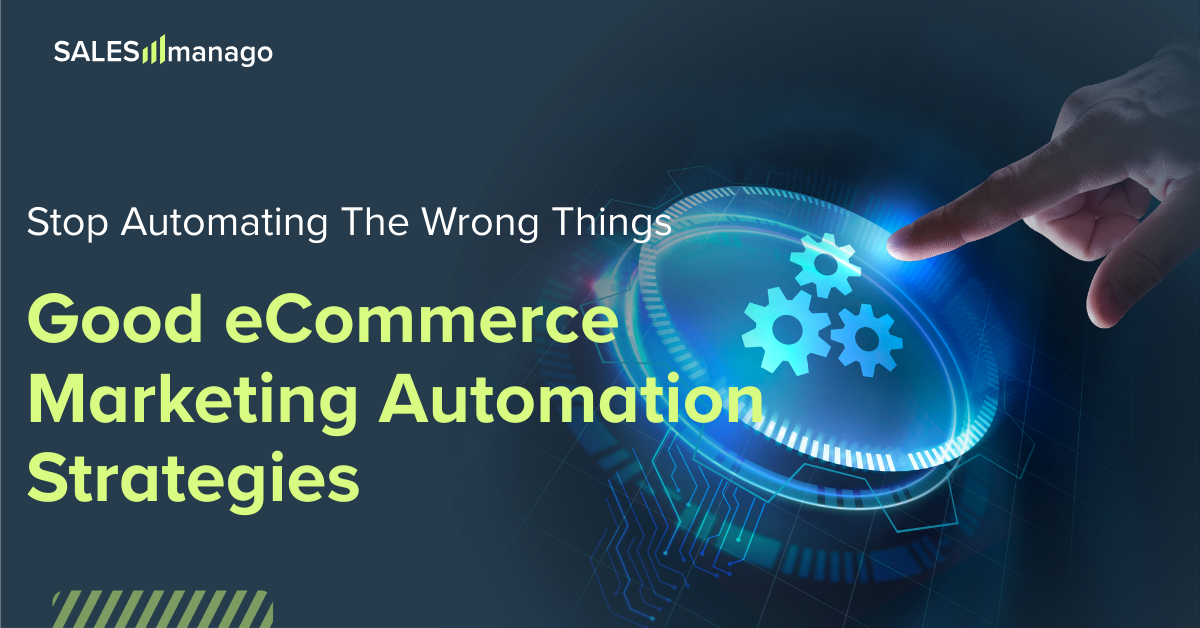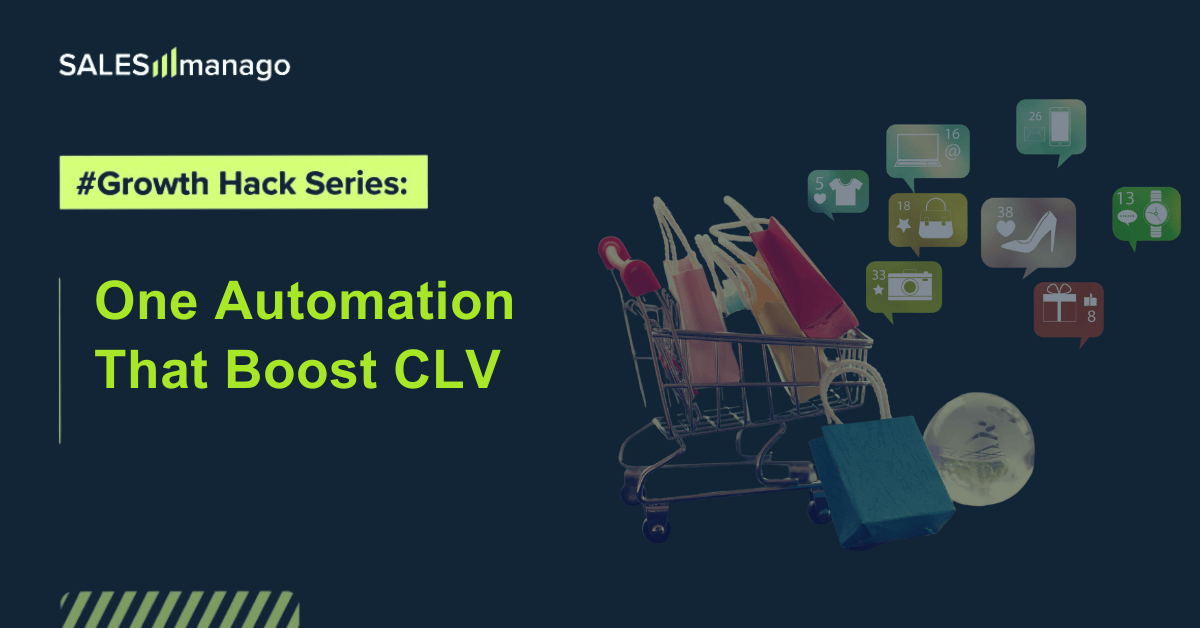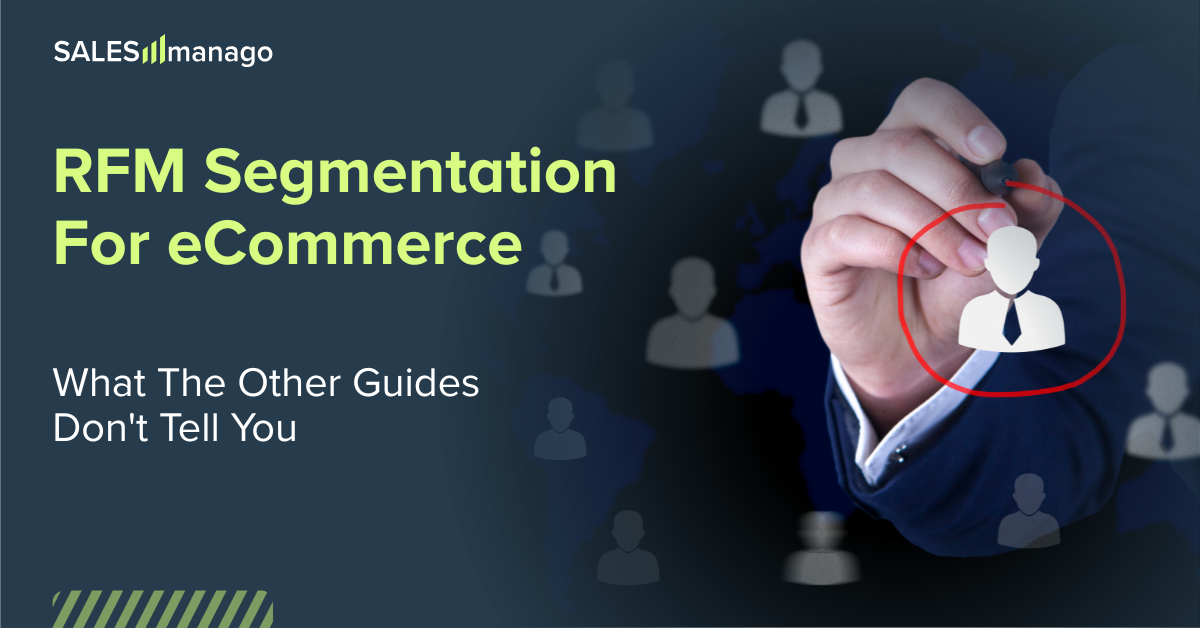
Digital marketing tools for eCommerce have become essential for a business’s survival and its ability to remain competitive in an oversaturated market. While, unlike physical spaces, the internet offers room for all forms of selling, the vast number of online shops and brands leads to highly volatile consumer behaviour. This is where the right marketing tools come into play, helping to increase conversion rates and boost customer retention.
In this article, you’ll discover the most effective software for marketing automation in eCommerce, what each of them is used for, and how you can adapt them to suit your business needs.
Why Ecommerce Marketing Tools Matter
Asking yourself today, in the digital age, why you need marketing tools is the equivalent of questioning the usefulness of marketing automation. Compared to the traditional approach, which involves time and human resources to carry out repetitive tasks like data collection, analysis, and then crafting and sending messages to potential clients and consumers throughout the various stages of the sales funnel, automated marketing relies on AI tools to streamline the entire workflow.
Below are some undeniable advantages of using marketing tools for eCommerce businesses:
Time and Energy Efficiency
Exhausted employees tasked with repetitive and monotonous work lead to reduced productivity on one hand, and significant expenses on the other – ranging from salaries and hiring additional staff to low efficiency in marketing efforts.
With digital marketing tools, tasks are executed automatically by artificial intelligence, which can provide valuable support in stages such as audience segmentation, analysing online behaviour and responses to your brand based on demographics, time spent on websites or social media, as well as interests and needs.
Automated message generation throughout various stages of the marketing funnel is also carried out automatically, perfectly synchronised with the moments users perform relevant actions in relation to your brand. A trained chatbot can handle frequently asked questions, taking over the workload of several human operators, who can then focus on more complex customer needs.
Data-Driven Decision-Making Through Analytics and Tracking
Automatically collecting data is not a goal in itself, but it is essential for building a solid foundation of insights that can guide future actions and lead to a coherent and unified strategy for addressing your target audience.
This extensive and complex process involves analysis, decision-making, implementation, and monitoring of results at each stage and every future interaction between the user and your brand.
With automated analytics tools, you gain a broader perspective on strategies that may help attract users, reduce cart abandonment rates, improve customer satisfaction, and boost retention.
Personalisation at Scale for Improved Customer Experience
Personalisation at scale is challenging – if not impossible – without digital marketing tools capable of sending individualised, simultaneous messages to multiple clients based on their unique profiles.
AI tools can be programmed to collect data, create detailed overviews, and build a coherent history for each customer, enabling the delivery of personalised messages. This process can be scaled effectively across various stages of the marketing funnel. It leads to better user responses, lowers resistance to advertising, and increases the chances of content being received positively.
From a marketing perspective, this translates into higher conversion rates, increased customer retention, and improved ROI—bringing us to the next major benefit of marketing tools and automation in eCommerce.
Better ROI Through Optimised Campaigns and Funnels
Ultimately, the value of marketing tools lies in their efficiency, which clearly translates into ROI. Any investment that pays off quickly is a win for the business, and in eCommerce, where marketing strategies, campaign implementation, and the right tools are essential, it matters even more.
This is where precision marketing comes in—where every decision is backed by thorough analysis of available customer data and aligned with the company’s needs. Actions become deliberate, targeted, and efficient, while analytics tools enable ongoing result tracking and timely adjustments to tactics and methods.
As a result, ROI improves, and as a manager, you won’t feel the pressure of investing in professional marketing tools.
Types of Ecommerce Marketing Tools
Implementing automated marketing does not come without its challenges. These stem from the fact that, practically, there is a different tool for each task. What is truly remarkable is the ability of these tools to integrate in your website through data using AI.
Therefore, for optimal functionality, efficient campaigns, and a centralised omnichannel marketing approach, you need specialised software across various areas of action. Throughout the marketing stages and then along the sales funnel, there are several steps that need to be covered with the appropriate tools.
Let’s now go through the main types, with relevant examples of the most appreciated marketing tools:
1. Email Marketing
Email automation helps you deliver relevant messages at the right moment. You can set up welcome campaigns, abandoned cart reminders or post-purchase loyalty flows.
Useful tools:
SALESmanago– multiple integrations, AI packed, focused on eCommerce
Omnisend – good for SMS + email
Mailchimp – classic email solution
Key benefit: personalised communication that boosts conversions.
2. Social Media Management
Consistent, targeted social media posts bring visibility and engagement. Dedicated tools help you schedule, analyse and optimise campaigns.
Useful tools:
Buffer / Later – simple and visual
Hootsuite – comprehensive, ideal for larger teams
Key benefit: saves time and maintains a constant online presence.
3. SEO & Content Marketing
Organic traffic is essential. With the right tools, you can find valuable keywords, optimise content, and improve your Google rankings.
Useful tools:
Ahrefs / SEMrush – for research and competitive analysis
Surfer SEO – real-time article optimisation
Key benefit: attracts qualified traffic without large budgets.
4. PPC & Advertising
Paid advertising remains a fast growth channel. You need tools that help you create, track and efficiently scale campaigns.
Useful tools:
Google Ads / Meta Ads Manager – classic channels
AdEspresso – simplifies multi-ad management
Key benefit: quickly attract new customers and easily test messages.
5. CRO (Conversion Rate Optimization)
It’s vital to turn traffic into orders. CRO tools show you what needs improvement on your site, where customers get stuck, and what changes can increase sales.
Useful tools:
Hotjar – heatmaps and visual feedback
Optimizely / VWO – simple and effective A/B testing
Key benefit: increases conversions without raising ad budgets.
6. Customer Feedback & Reviews
Customer opinions influence purchasing decisions. Collecting reviews and managing your reputation are crucial.
Useful tools:
Yotpo – reviews + loyalty
Trustpilot / Judge.me – trust and transparency
Key benefit: more confident customers, higher sales.
7. Influencer & Affiliate Marketing
Promotion through ambassadors or partners brings credibility and fresh exposure.
Useful tools:
Upfluence / Grin – influencer management platforms
Refersion – for affiliate and commission tracking
Key benefit: attract new audiences through trust and recommendations.
8. Analytics & Tracking
No decision without data! Analytics tools help you understand what works and where you're losing money.
Useful tools:
Google Analytics 4 – the foundation of any analysis
Mixpanel / Heap – user behaviour analytics
Looker Studio – custom visual reports
Key benefit: informed decisions and data-driven strategies.
Choosing the Right Tools for Your Ecommerce Business
The landscape of digital marketing tools is vast and complex, as you may have noticed in the section above. We have highlighted some of the best tools available, but there are many others, less well-known, offered by various marketing agencies. Their features can be tailored to suit the specific needs of each business. Therefore, you are faced with important decisions when it comes to selecting the most suitable specialised software.
Your choice will depend on several factors. Here’s how you should narrow down your list of tools and define the tasks they need to fulfil. When making your selection, consider the following criteria and invest wisely:
1. Your business objectives
Define clearly what you want to achieve: more traffic? A better conversion rate? Customer loyalty? Depending on these goals, prioritise the tools that directly support them – for example, if your traffic is good but conversions are low, your focus should be on CRO, not advertising.
2. The stage your shop is at
An online start-up will have different needs compared to an established brand. At the beginning, you’ll need simple, affordable, and multifunctional tools like Mailchimp or Canva. As your business grows, you’ll require more advanced, integrated, and automated platforms such as HubSpot, Salesforce Marketing Cloud or SALESmanago.
3. Integration with your eCommerce platform
Make sure the tools you choose are compatible with Shopify, WooCommerce, Magento, or whatever platform you are using. Good integrations save time, reduce errors, and give you a unified view of campaign performance.
4. Ease of use and technical support
A complex tool with a difficult interface can become a burden for your team. Look for intuitive solutions with clear tutorials, an active community, and responsive support. Always test free or demo versions before purchasing a premium licence.
5. Available budget
The most expensive tools are not always the best fit for your business. Many premium tools, or those with entry-level plans, offer enough functionality for businesses just starting out. Analyse the cost/benefit ratio and only upgrade when your growth demands it.
6. Scalability
Invest in tools that can grow with your business. Constantly switching platforms because the current one can no longer handle your data volume or user numbers can be frustrating. Platforms like ActiveCampaign, Klaviyo, or HubSpot are ideal for gradual growth.
Conclusion
In 2025, the success of an online shop depends increasingly on the ability to use digital marketing tools effectively. These tools not only automate processes but completely transform how you engage with your customers. The key is not to use them all, but to choose those that best fit your business, integrate them smoothly, and continuously optimise them based on the data you collect.
Latest posts

Stop Automating the Wrong Things: Good eCommerce Marketing Automation Strategies
You’ve automated welcome emails. You’ve got abandoned cart sequences running. Congrats, you’ve checked the boxes every tutorial told you to check.Meanwhile, your VIPs are churning because nobody automated the retention workflow. Your one-time buyers never get nudged towards a second purchase. Your mid-value customers drift away while you obsess over cart aband...

Growth Hack Series: One Automation That Boosts CLV
When working in an eCommerce marketing team you have plenty of metrics to observe: AOV, CR, RPV, CAC, CTR, CPC and a few other cool sounding acronyms. But sometimes the most important data you need is hidden under simple questions. “How many first-time buyers became second-time buyers last month?” — and the room usually goes quiet.That silence is expe...

RFM Segmentation For eCommerce: What The Other Guides Don't Tell You
You've read the RFM segmentation guides. You get it. Recency, Frequency, Monetary Value. You understand that your best customers bought recently, buy often, and spend big. You've even tried building segments.So why is your email performance still flat? Why is retention stuc...
